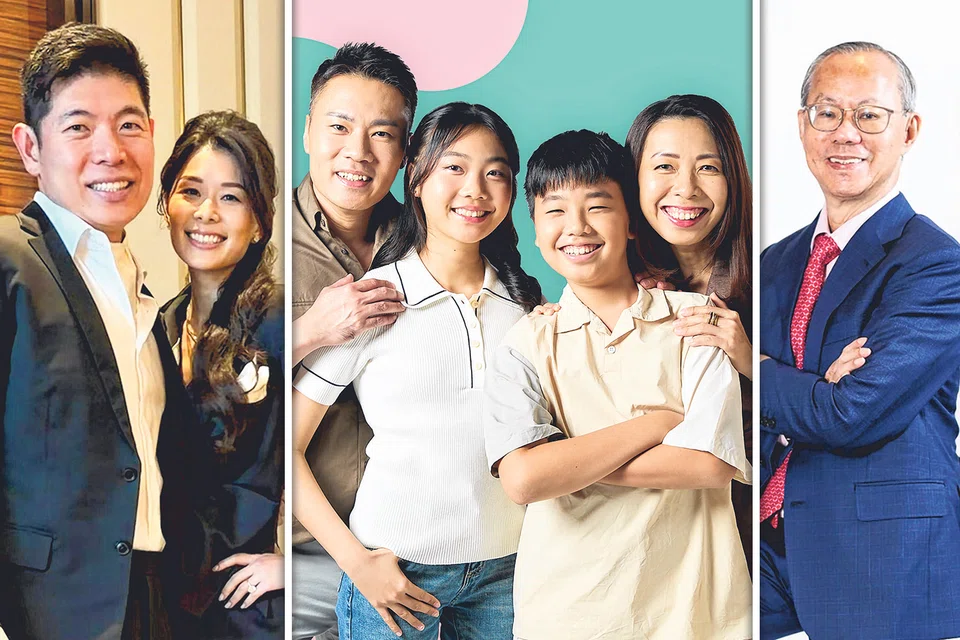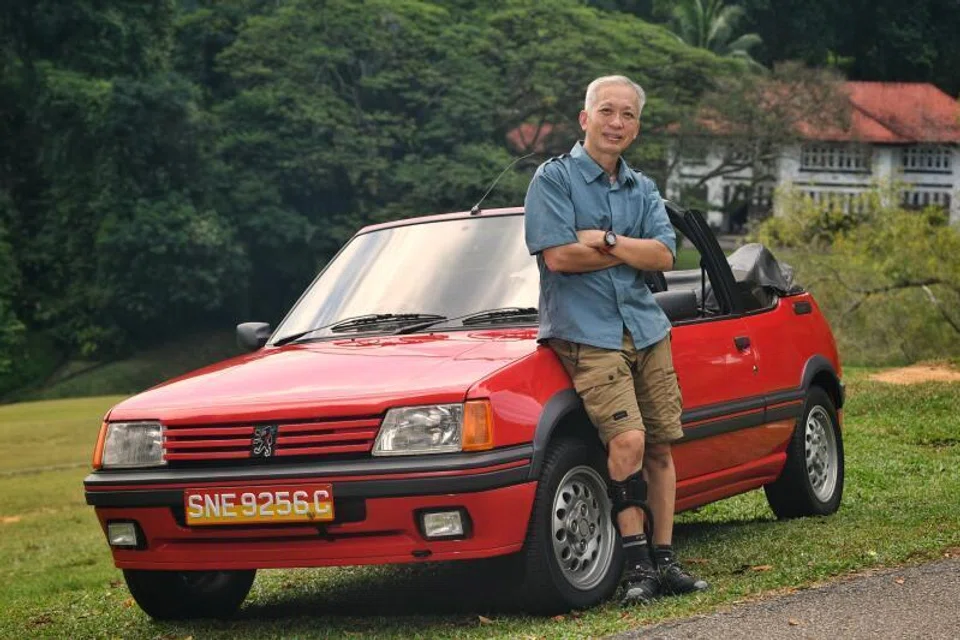All about legacy giving


LEGACY giving is not the prerogative of the ultra-wealthy alone. That is the mindset the Community Foundation of Singapore (CFS) wants to inculcate with its latest movement – the Legacy Giving Initiative (LGI) – which was launched by a campaign called A Greater Gift last November.
According to a Social Pulse survey, while the majority of respondents (83 per cent) flagged awareness on what legacy giving is, only 33 per cent considered legacy as a means of giving, and just 3 per cent indicated they would take action.
Legacy gifts can be broadly defined as planned, future donations to charities, which include cash, marketable securities, insurance payouts, and CPF monies. Those looking to support a cause over a period of years can establish a donor-advised fund (DAF) with organisations such as CFS to manage grant distributions. Now, about six months after the Legacy Giving Initiative was launched, CFS is shifting into the knowledge phase of its initiative.
CFS chairperson Christine Ong said the foundation “will drive this phase by engaging with prospects and partners, conducting targeted research to gather data insights, and building formal alliances with multipliers”.
“The digitally-led campaign, A Greater Gift, has introduced people from different walks in life in Singapore to legacy giving,” she said.
CFS’ microsite on legacy giving has reached out to three key audiences – individuals, professional advisers and charities – receiving over 33,000 page views from 19,000 visitors since its launch and offering information on legacy giving.
Radio spots were also featured in the campaign, reaching over 1.3 million people.
Gregory Vijayendran, the president of The Law Society of Singapore, said that for the gift-giver, legacy giving has four advantages.
First, it allows the donor to give their own voice to their unique personality, values and beliefs for a cherished cause. Secondly, it creates a meaningful memorial to perpetuate the legacy of the donor, he said. Thirdly, it positively impacts subsequent generations through sustained giving. And, lastly, he said it deepens and lengthens the connection between the charity and the donor.
Ms Ong is keen to build on the momentum gained so far. She said that donors’ profiles with CFS have evolved over the last 12 years since it was set up.
“The younger generation is more interested to identify problems, or be more involved with understanding the issues and identifying the cause before they decide to set up a fund,” she said.
CFS is looking into ways to measure the social impact of the research programme.
“We hope to see how this can be done on a more standardised national level. We want donors to be more focused on the impact of their giving and, at the same time, allow charities to upscale, to make them better stewards to their donors,” said Ms Ong.
“CFS will be sharing knowledge on legacy giving, to empower and enable more individuals to plan and make legacy gifts. In addition, we will work with professional advisers by providing them with resources to help them ignite conversations with clients, and share its knowledge on legacy giving, as well as the potential of DAF, to empower and enable more individuals to plan and make legacy gifts.”
To date, CFS has cultivated over 400 professional advisers and charity representatives, through online events, seeding a network of conversation starters and multipliers for legacy giving.
Ms Ong said the aim is to send the broader message that “everyone can give”.
“Giving is not about the amount and you can start at any stage of your life. For those who can set up their own DAF, they can make a pledge – we will take pledges of S$200,000 and create funds for them,” she said.
“Regardless of one’s background and lifestyle, everyone can play a part in the shared ambition for a fairer and more sustainable Singapore.”
This article was originally published in The Business Times here. Source: The Business Times © Singapore Press Holdings Limited. Permission required for reproduction
To find out more about Legacy Giving, kindly visit our Legacy Giving website or contact us here.
LEGACY giving is not the prerogative of the ultra-wealthy alone. That is the mindset the Community Foundation of Singapore (CFS) wants to inculcate with its latest movement – the Legacy Giving Initiative (LGI) – which was launched by a campaign called A Greater Gift last November.
According to a Social Pulse survey, while the majority of respondents (83 per cent) flagged awareness on what legacy giving is, only 33 per cent considered legacy as a means of giving, and just 3 per cent indicated they would take action.
Legacy gifts can be broadly defined as planned, future donations to charities, which include cash, marketable securities, insurance payouts, and CPF monies. Those looking to support a cause over a period of years can establish a donor-advised fund (DAF) with organisations such as CFS to manage grant distributions. Now, about six months after the Legacy Giving Initiative was launched, CFS is shifting into the knowledge phase of its initiative.
CFS chairperson Christine Ong said the foundation “will drive this phase by engaging with prospects and partners, conducting targeted research to gather data insights, and building formal alliances with multipliers”.
“The digitally-led campaign, A Greater Gift, has introduced people from different walks in life in Singapore to legacy giving,” she said.
CFS’ microsite on legacy giving has reached out to three key audiences – individuals, professional advisers and charities – receiving over 33,000 page views from 19,000 visitors since its launch and offering information on legacy giving.
Radio spots were also featured in the campaign, reaching over 1.3 million people.
Gregory Vijayendran, the president of The Law Society of Singapore, said that for the gift-giver, legacy giving has four advantages.
First, it allows the donor to give their own voice to their unique personality, values and beliefs for a cherished cause. Secondly, it creates a meaningful memorial to perpetuate the legacy of the donor, he said. Thirdly, it positively impacts subsequent generations through sustained giving. And, lastly, he said it deepens and lengthens the connection between the charity and the donor.
Ms Ong is keen to build on the momentum gained so far. She said that donors’ profiles with CFS have evolved over the last 12 years since it was set up.
“The younger generation is more interested to identify problems, or be more involved with understanding the issues and identifying the cause before they decide to set up a fund,” she said.
CFS is looking into ways to measure the social impact of the research programme.
“We hope to see how this can be done on a more standardised national level. We want donors to be more focused on the impact of their giving and, at the same time, allow charities to upscale, to make them better stewards to their donors,” said Ms Ong.
“CFS will be sharing knowledge on legacy giving, to empower and enable more individuals to plan and make legacy gifts. In addition, we will work with professional advisers by providing them with resources to help them ignite conversations with clients, and share its knowledge on legacy giving, as well as the potential of DAF, to empower and enable more individuals to plan and make legacy gifts.”
To date, CFS has cultivated over 400 professional advisers and charity representatives, through online events, seeding a network of conversation starters and multipliers for legacy giving.
Ms Ong said the aim is to send the broader message that “everyone can give”.
“Giving is not about the amount and you can start at any stage of your life. For those who can set up their own DAF, they can make a pledge – we will take pledges of S$200,000 and create funds for them,” she said.
“Regardless of one’s background and lifestyle, everyone can play a part in the shared ambition for a fairer and more sustainable Singapore.”
This article was originally published in The Business Times here. Source: The Business Times © Singapore Press Holdings Limited. Permission required for reproduction
To find out more about Legacy Giving, kindly visit our Legacy Giving website or contact us here.
- Related Topics For You: CHARITY STORIES, DONOR STORIES, DONOR-ADVISED FUND, LEGACY GIVING, NEWS


